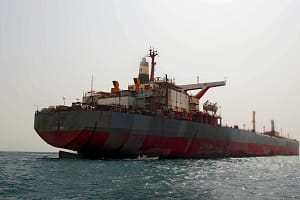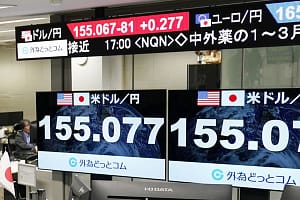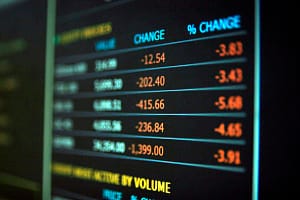Global stock markets tumbled overnight with oil prices soaring to their highest level in seven years after Vladimir Putin ordered Russian troops to enter Ukraine.
Shares tumbled amid the intensifying crisis between Russia and Ukraine, with the FTSE 100 Index dropping by more than 1% at one stage.
There were heavy overnight drops seen in Asia, before London’s top tier pared back declines to settle around 0.5% lower.
The London stock market fell sharply on the open today but recovered some poise by mid-morning – a signal of the volatility investors are likely to see in the coming weeks and months.
Jason Hollands, managing director at investing platform Bestinvest said, “Since the start of the year, the two key concerns that have loomed over financial markets have been the prospect of rising borrowing costs as central banks tighten monetary policy to tackle surging inflation and escalating tensions between Russia and Ukraine.
“The news last night that Russian tanks have entered eastern Ukraine under the auspices of ‘peace keeping’ – following a decision by President Putin to recognise two separatist regions as ‘independent states’ – has, unsurprisingly, rattled the markets. Further volatility is likely, the scale of which will depend on whether Russia escalates its aggression and on the severity of western sanctions.
“While it is understandable that investors will be spooked by a potential conflict in Europe, it can be unwise we to take knee-jerk decisions around long-term investments based on short-term news headlines.
“Nathan Rothschild, one of the founders of the banking dynasty, is alleged to have opined ‘Buy on the sound of cannons, sell on the sound of trumpets’, having made a fortune during the Napoleonic war. His words are often taken as advice to scoop up investments that others sell in a panic.
“However, the tale is a little more nuanced, since Rothchild’s network of agents learned of the Duke of Wellington’s victory at the Battle of Waterloo in 1815 ahead of other investors, giving him an information advantage that would not stand up in today’s digital world of 24-hour news.
“While buying when markets experience sharp sell-offs can make sense, trying to second guess when market declines have bottomed out is near impossible, and therefore a combination of not panicking, together with progressively adding to portfolios in small bites following falls is wiser than taking a cavalier approach.
“Clearly the Ukrainian and Russian economies are most exposed to the implications of crisis but most investors will have little, if any, exposure to Russian or Ukrainian investments. To put this in context Russian shares constitute a mere 2.85% of the MSCI Emerging Markets Index. Russia’s balance sheet is stronger now that it was at the time of the seizure of Crimea in 2014, with lower external debt, and therefore is arguably less vulnerable to sanctions than it was then.
“Among the major European economies, Germany has the greatest trade ties with Russia, but these still only account for 2% of German exports. The main implication from the crisis is therefore the potential for a further surge in energy prices, which would add to inflationary pressures.
“Since the global financial crisis, investors have got used to a playbook where central banks ride to the rescue during crisis, cutting interest rates and creating new money to flood the markets with liquidity.
“However, that cannot be relied upon now as central banks have their credibility on the line in terms of taming inflation. Therefore the prospect of inflation and rising borrowing costs look set to remain key considerations for investors, which creates a challenging backdrop for ‘growth’ sectors such as technology stocks and markets like the US where they are a major component.
“In contrast, banks are beneficiaries of rising interest rates and energy and commodities are key components of rising inflation. In this respect, the make-up of the UK stock market – which has sizeable exposure to financials, energy and mining stocks – should continue to prove more resilient than the US with has high weightings to ‘growth’ sectors that are likely to prove more vulnerable to rising borrowing costs.”






Leave a Comment